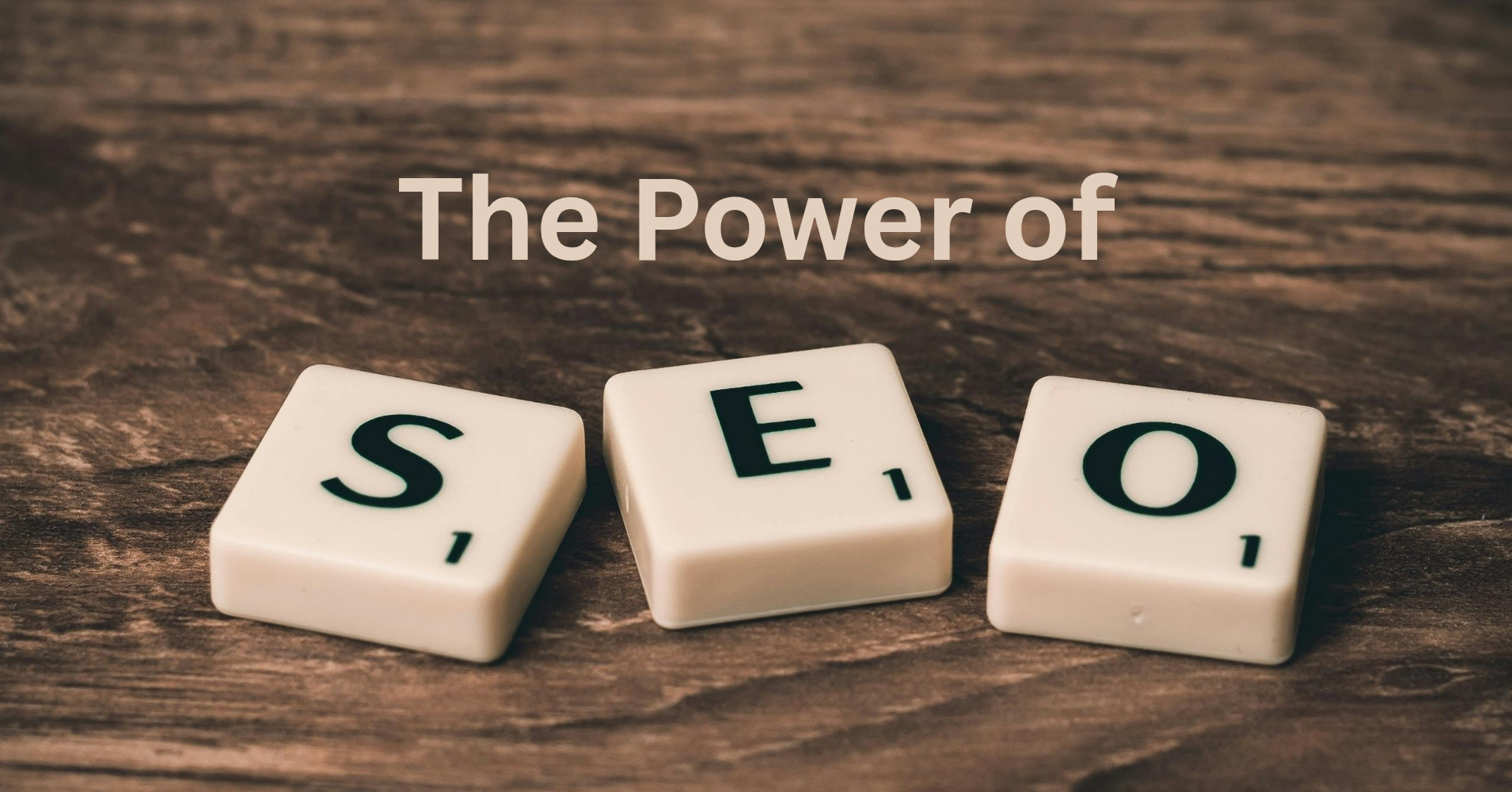BLog
Want to Learn About Marketing?
The Power of SEO: How to Get Your Website on Google’s First Page

By Luckson Denis — Freelance Digital Marketer & SEO Strategist
Visibility Is Everything
Imagine having the best product or service in your niche — but no one knows you exist.
Your website is live, your brand looks great, yet traffic is painfully low.
That’s not a design problem.
That’s an SEO problem — Search Engine Optimization.
In today’s digital world, being invisible on Google is like having a shop in the desert. SEO is what puts your business in front of the people actively searching for what you offer.
In this guide, I’ll show you exactly how SEO works, why it matters in 2025, and how you can use it to dominate your competition — even on a small budget.
1. What Exactly Is SEO?
SEO (Search Engine Optimization) is the process of improving your website’s visibility on search engines like Google.
When done right, SEO helps your pages appear on the first page of search results — where all the clicks happen.
It’s about more than just keywords. It’s about creating a website and content that both users and Google’s algorithm trust.
The 3 Pillars of SEO
1. On-Page SEO: Optimizing your website content — titles, keywords, internal links, images, and meta descriptions.
2. Off-Page SEO: Building your reputation through backlinks (links from other trusted websites).
3. Technical SEO: Making sure your site loads fast, is mobile-friendly, and easy for Google to crawl.
When these three elements work together, Google starts recognizing your website as relevant and reliable — and rewards you with higher rankings.
2. Why Being on Google’s First Page Is So Important
Let’s look at the numbers:
75% of users never scroll past the first page of Google.
The first 3 organic results get over 50% of all clicks.
Websites on the first page earn 10x more traffic than those on page two.
That means:
> If you’re not on the first page, your competitors are taking your clients.
Think about your own behavior.
When you search for something like “best digital marketer near me” — do you click page two or three? Probably not.
That’s why SEO is not optional — it’s essential.
3. How SEO Works (in Simple Terms)
When someone searches for a topic, Google scans billions of web pages to find the most relevant and trustworthy results.
It uses over 200 ranking factors to decide which pages appear first.
The good news? You don’t need to master all 200 — just focus on the key ones that truly move the needle.
Step 1: Keyword Research
This is the foundation of SEO.
You need to find out what your audience is searching for and the exact words they use.
For example:
“digital marketing freelancer”
“how to rank my website on Google”
“SEO services for small business”
Use tools like Google Keyword Planner, Ahrefs, or Ubersuggest to discover keywords with:
High search volume
Low to medium competition
Clear intent (people ready to take action)
Once you know your target keywords, naturally include them in:
Your titles and headings (H1, H2)
The first 100 words of your article
Image alt text and meta descriptions
URLs and internal links
But remember — write for humans first, search engines second.
—
Step 2: Create Valuable, Optimized Content
Content is the heart of SEO.
Google rewards websites that help users — not just those stuffed with keywords.
The secret is to create content that solves problems.
Example: If someone searches “how to increase website traffic,” they’re not looking for theory. They want actionable tips.
When you provide that, Google notices — and so does your audience.
Tips for SEO-Friendly Content:
✅ Write long-form, detailed articles (1,500–2,000+ words).
✅ Use your keyword 5–10 times naturally.
✅ Add relevant subheadings (H2/H3).
✅ Include visuals, infographics, or videos.
✅ End with a clear call-to-action (CTA).
The longer visitors stay on your page, the higher your engagement score, and the more likely Google will boost your ranking.
—
Step 3: Build Quality Backlinks
Backlinks are like votes of confidence.
When another reputable site links to yours, Google sees that as a sign your content is trustworthy.
Ways to get backlinks:
Guest post on niche blogs.
Get featured in online directories.
Partner with influencers or industry experts.
Create shareable infographics or guides.
But avoid spammy backlinks — quality beats quantity every time.
—
Step 4: Optimize Your Website’s Technical Performance
Even great content can fail if your site is slow or broken.
Make sure:
Your website loads in under 3 seconds.
It’s mobile-friendly (responsive).
You use HTTPS for security.
Your URLs are clean and simple (e.g., lucksondenis.com/seo-tips).
You have a sitemap submitted to Google Search Console.
Google’s algorithm prioritizes user experience — so every second matters.
4. The Real Benefits of SEO for Your Business
If you’re wondering whether SEO is worth it, let’s look at the real advantages that go far beyond just rankings.
1. Continuous, Free Traffic
Unlike paid ads that stop the moment you stop paying, SEO keeps working 24/7.
A well-optimized blog post can bring visitors for years — at no extra cost.
2. Builds Trust and Credibility
People trust Google.
So when your website shows up first, they automatically trust you more.
SEO builds authority — and authority drives conversions.
3. Better Conversion Rates
SEO brings people who are already interested in your service.
That’s why organic traffic often converts 2–3x better than cold advertising.
4. Long-Term ROI
While SEO takes time, its return on investment is massive.
Once you rank, maintaining it is far cheaper than constantly running paid campaigns.
5. Competitive Advantage
Your competitors are investing in SEO — if you’re not, you’re giving them free customers.
5. Common SEO Mistakes (and How to Avoid Them)
Even with good intentions, many websites make costly SEO errors.
Here are some to avoid:
❌ Keyword Stuffing
Overusing keywords looks spammy and hurts rankings. Keep it natural.
❌ Duplicate Content
Never copy-paste text from other sites. Google rewards originality.
❌ Ignoring Mobile Optimization
Over 70% of searches now happen on mobile devices. A poor mobile experience kills traffic.
❌ No Internal Linking
Link to other relevant pages on your site. It helps Google understand your structure and keeps users exploring longer.
❌ Neglecting Analytics
You can’t improve what you don’t measure.
Use Google Analytics and Search Console to track your progress weekly.
6. The Evolution of SEO in 2025
SEO isn’t static — it’s constantly evolving.
Here’s where it’s heading this year and beyond:
🔹 AI-Powered Search
Google’s new AI-driven algorithm (like Gemini and RankBrain) understands user intent better than ever.
That means content must be genuinely helpful, not robotic.
🔹 Voice Search Optimization
With Siri, Alexa, and Google Assistant, voice searches are growing fast.
Focus on natural, conversational keywords like “Who is the best digital marketing freelancer near me?”
🔹 E-E-A-T: Experience, Expertise, Authority, Trust
Google now favors authors with real experience and expertise.
That’s why it’s powerful to build your personal brand as a trusted voice — exactly what I help my clients do.
🔹 User Experience (UX)
SEO is no longer just about keywords — it’s about how visitors interact with your site.
If users stay longer and engage more, your rankings rise.
7. How to Build an SEO Strategy That Actually Works
If you’re serious about ranking, here’s the roadmap I use for my clients:
1. Audit your website.
Identify what’s holding you back — speed issues, missing meta tags, or low-quality pages.
2. Research profitable keywords.
Focus on phrases your ideal clients actually search for.
3. Create pillar content.
Write in-depth guides and blogs that answer real questions in your niche.
4. Optimize for on-page SEO.
Include keywords in titles, subheadings, images, and meta descriptions.
5. Promote your content.
Share it on social media, send it via email, and collaborate for backlinks.
6. Track, analyze, and refine.
SEO is a process — every month, you get better data and stronger results.
8. Why Work With a Freelance SEO Expert (Instead of a Big Agency)
Most agencies use the same cookie-cutter approach for everyone.
But SEO is not one-size-fits-all — it’s a personal strategy that depends on your goals, niche, and competition.
As a freelancer, I provide:
One-on-one attention — no middlemen.
Flexible pricing that fits your budget.
Custom strategies built around your goals.
Transparent results and direct communication.
When you work with me, you’re not just hiring an SEO service —
You’re partnering with someone who’s invested in your success.
9. How Long Does SEO Take to Work?
That’s one of the most common questions I get.
Here’s the truth:
Small improvements can happen in 30–60 days.
Major ranking growth usually takes 3–6 months.
The biggest results come from consistent SEO over time.
SEO is like planting seeds.
The more you nurture them, the stronger your online presence grows — until you’re unstoppable.
SEO Is the Smartest Investment You Can Make
SEO isn’t magic — it’s strategy, consistency, and expertise.
It’s about building a digital foundation that keeps attracting clients long after the ads stop running.
If you want more visibility, more traffic, and more clients —
You don’t need a big agency. You need a dedicated SEO expert who understands how to make Google work for you.
🚀 Ready to Get Your Website on Google’s First Page?
Let’s Get Started
I’m Luckson Denis, a freelance digital marketer and SEO strategist.
I help businesses like yours attract real, organic traffic that converts into loyal clients.
If you’re ready to: ✅ Rank higher on Google
✅ Increase your visibility
✅ Turn your website into a 24/7 sales machine
Then let’s work together.
👉 Contact me today for a free SEO audit and personalized growth strategy.
